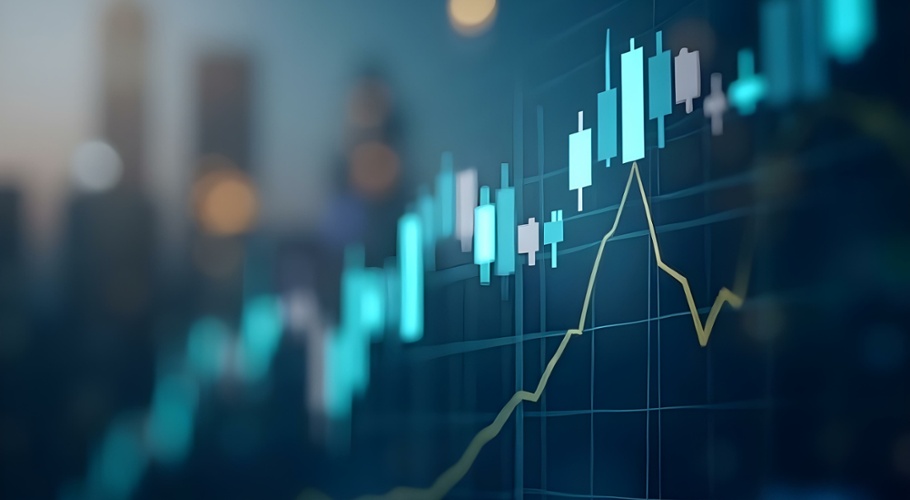Why the markets are hitting new highs, even as the economy falters
Australia’s economy powered out of the 2020 lockdowns to record three quarters of strong GDP growth through to the first quarter of this year. With June 2021 quarter data on Wednesday, can that momentum continue or did the end of Job Keeper wage subsidy and weak consumer data herald a slide to a double-dip recession?
BetaShares economist David Bassanese shares his view on what the data will tell us and how markets are preparing for it.
Bassanese expects a modestly positive number of around 0.5%, which will be weaker than the preceding three quarters as the pace of recovery slows from the initial re-opening bounce.
Counting in the June quarter’s favour is solid growth in hours worked, an uplift in business investment and still-solid exports. Overall retail sales volumes were also positive in the quarter.
That would mean the economy could narrowly escape a double-dip recession – counting on the certainty that the September quarter will be negative.
Bassanese anticipates a sharp 3% drop in the September quarter, thanks to extended lockdowns in NSW, the most populous state and largest contributor to national economic growth, to counter the fast-spreading Delta variant of COVID-19.
The Reserve Bank of Australia (RBA) foreshadowed such a result in its monthly monetary policy statement, warning recent outbreaks of the virus would interrupt an otherwise bullish outlook for GDP growth.
“The experience to date has been that once virus outbreaks are contained, the economy bounces back quickly,” the RBA said.
“Prior to the current virus outbreaks, the Australian economy had considerable momentum and it is still expected to grow strongly again next year. The economy is benefiting from significant additional policy support and the vaccination program will also assist with the recovery.”
Investors banking on recovery
And that is where markets are focusing, according to Bassanese. The strength in the share market – which is up nearly 60 per cent from its 2020 low and scaling record highs - shows investors are looking through to higher vaccination rates and greater economic freedoms by year end.
“It's almost, from a market perspective, that the only interesting aspect of the June quarter GDP is whether it could be negative - but I don't think so. Of course, that still leaves the risk of a technical recession if the lockdowns drag on and the December quarter GDP number is also negative. But again, I don't think so."
“The markets globally I think are already looking through Delta, because economies aren't shutting down. The UK is reopening, the US is not shutting down. Markets would only be concerned if new COVID-19 cases lead to renewed shutdowns,’ he says.
“But high vaccination rates mean these economies are already experiencing greatly reduced death and hospitalisation rates. COVID-19 in the northern hemisphere is increasingly a pandemic affecting only those still unvaccinated.”
Markets starting a new bull phase
Bassanese thinks that markets are at the beginning of a new bull phase, spurred by optimism about vaccination and supported by strong corporate earnings, low inflation and continued easy monetary policy.
“The Fed is still … probably two years away from tightening. The only other risk is just the tapering (of bond buying) but I think the tapering will be quite gradual and well telegraphed and shouldn't disrupt markets,” he says.
“So, notwithstanding all the concern about health care, I think the markets are correctly kind of looking through it because they see vaccines as the solution and lockdowns aren't the solution anymore.”
Look to growth stocks
In that scenario he says investors should continue to look to growth stocks over value – particularly technology stocks - and international equities over the domestic market.
Tech stocks were already leading the market before COVID-19 struck and accelerated as the first wave of lockdowns hit. But as economies recovered investors rotated back to value stocks – sectors like energy and financials – that were beaten down in the early stages.
Bassanese thinks that theme has been played out now and growth stocks are likely to lead from here.
“I don't see a return to the high inflation, high interest rates that would support a stronger value rotation into things like energy and financials.
“So I still would see that the favourable area to be in is global technology, both in the US and in Asia, where there are opportunities because the sell-off has been overdone.”
The big Asian stock markets were sold off in the middle of the year after the Chinese Government launched a crackdown on tech companies with the ability to collect and transfer large amounts of personal data about their customers.
“There's obviously debate going on about how far China is going to go. There's obviously the regulatory risk because of the policy changes in China, but if you look at the earnings outlook for the major companies, they are still very, very strong.”
“So it's still a good outlook for equity markets. And I think growth is going to reassert itself. The outperformance trend that it was enjoying in the early part of the COVID-19 sell-off, is going to reassert itself.”

